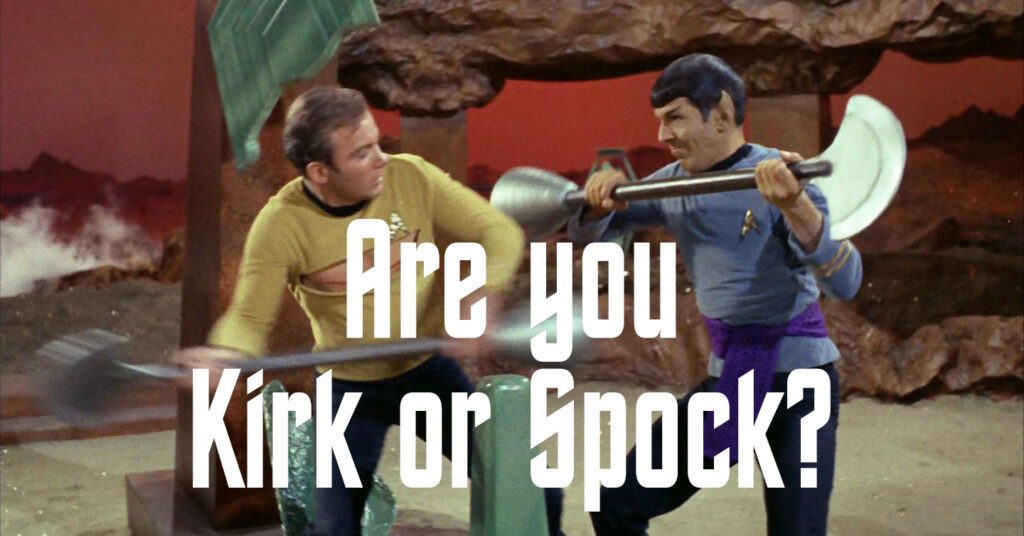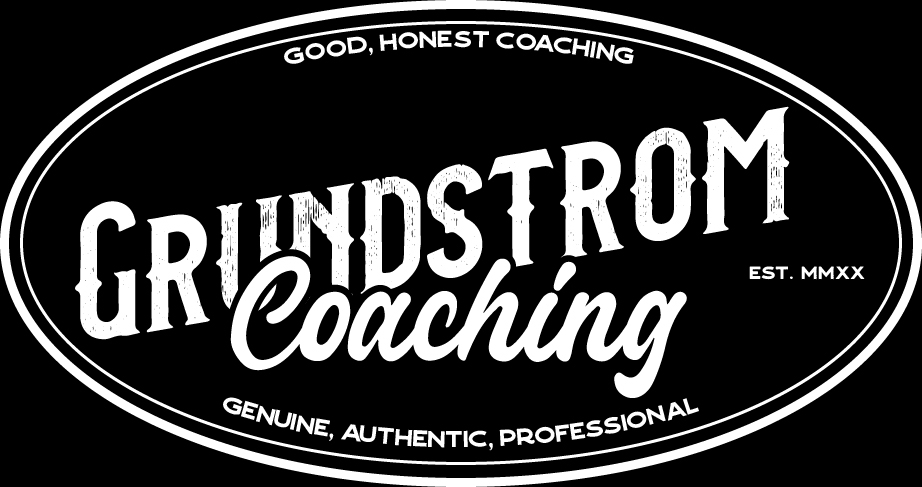
This actually demonstrates quite well something which really sums up how coaching can work. Kirk and Spock are quite different as we know; Kirk is the emotional one, led by his feelings, sometimes to his detriment. Spock is there to be the logical one, keeping his emotions in check. Sometimes they agree, and sometimes they disagree, even violently as we see here (although they’re being somewhat coerced…).
If we think about how we ourselves have the same two sides: an emotional one and a logical one, and how they really struggle against each other sometimes then there’s an interesting point to make. Salespeople try to turn an emotional choice into a logical one for example. That shiny red car with its sleek lines appeals to our emotions, but the sales person is trying to make it seem like a logical choice, essentially the old turning a “need” into a “want”.
Now, where this comes into coaching is that coaching often deals with a certain situation. There’s a trigger or a set of circumstances which produce a result which isn’t the optimal. Our first reaction to this situation is always going to be an emotional one. It’s basic evolution; the brain just doing a quick assessment. Once we’re over the emotional response, we move to a logical response. “Oh, that is a nice shiny red car, but it’s really too small and too expensive.”
When we’re faced a certain situation in our daily lives, and it can be a small specific one, like someone saying something or a particular trigger, or a more general one like a general outlook, I’ve really found through listening to my clients that it’s the same response: an emotional one followed by the logical one. The problem arises when it’s the emotional one which is allowed to take over.
When this happens our general emotional state will invariably kick in. If we’re feeling generally a bit rubbish, someone saying something about our work can trigger a downwards emotional spiral, such as feelings of inadequacy, reinforcement of a narrative, or even the old impostor syndrome. Unchecked this will create its own feedback loop where an emotional response follows another emotional response.
Where coaching comes in is that by already having gone through the situation, or similar ones with a coach, we can halt that loop and access our logical function. Instead of taking criticism as a personal attack, by applying the correct thinking we can see it instead as useful feedback. It’s the old “count to ten”. We can assess where the feeling is coming from, why we’re responding in a certain way, and go back into a logical state much quicker. An appropriate response to what was first seen as a total attack on us when we’re feeling vulnerable, out of sorts, down, depressed, hopeless, and “this always happens to me”-sort of narrative, instead becomes useful, coming from a place of concern, proof that someone at least cares, that we’re seen and recognised, and most importantly, that maybe that person can see something we in our emotional state can’t. This last point is another interesting one I’m going to revisit at some point.
So if you find yourself in a situation, or in a state of mind which isn’t useful, think about if you’re being Kirk or Spock. Your brain can sometimes trick you though and say “I’m being totally Spock RIGHT NOW!”, so do consider if it’s trying to trick you, doing its own little sales pitch.

